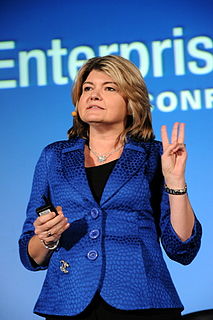A Quote by Ryan Holmes
Social media has given companies access to unprecedented amounts of information on client behavior and preferences - so-called Big Data. But making sense of it all and turning it into actionable policy has been elusive.
Related Quotes
Social media is something of a double-edged sword. At its best, social media offers unprecedented opportunities for marginalized people to speak and bring much needed attention to the issues they face. At its worst, social media also offers 'everyone' an unprecedented opportunity to share in collective outrage without reflection.
One of the myths about the Internet of Things is that companies have all the data they need, but their real challenge is making sense of it. In reality, the cost of collecting some kinds of data remains too high, the quality of the data isn't always good enough, and it remains difficult to integrate multiple data sources.
I think there's confusion around what the point of social networks is. A lot of different companies characterized as social networks have different goals - some serve the function of business networking, some are media portals. What we're trying to do is just make it really efficient for people to communicate, get information and share information.
Data isn't information. ... Information, unlike data, is useful. While there's a gulf between data and information, there's a wide ocean between information and knowledge. What turns the gears in our brains isn't information, but ideas, inventions, and inspiration. Knowledge-not information-implies understanding. And beyond knowledge lies what we should be seeking: wisdom.


































